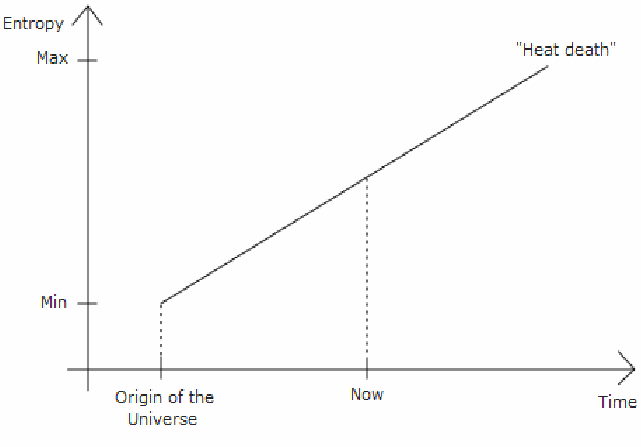The heat death of the universe is one possible fate of an open universe that expands forever, a state of uniform temperature, in which no energy transfer can take place to sustain motion or life. In the language of physics, it has reached maximum entropy or thermodynamic disorder.
The idea of heat death stems from the second law of thermodynamics, which states that entropy tends to increase in an isolated system. If the universe lasts for a sufficient time, it will asymptotically approach a state where all energy is evenly distributed. In other words, in nature there is a tendency for mechanical energy to be dissipated as friction, eventually turning completely into heat.
From the Big Bang through the present day and well into the future, matter and dark matter in the universe are thought to be concentrated in stars, galaxies, and galaxy clusters. Therefore, the universe is not in thermodynamic equilibrium and objects can do physical work. Eventually though, all the hydrogen in they Universe will have been burnt, and there will be only star remnants of one form or another. These will eventually collect into supermassive black holes. The lifetime for a supermassive black hole of roughly 1 galaxy-mass (![]() solar masses) due to Hawking radiation is on the order of
solar masses) due to Hawking radiation is on the order of![]() years, so entropy can be produced until at least that time. After that time, the universe enters the so-called dark era, and is expected to consist chiefly of a dilute gas of photons and leptons.
years, so entropy can be produced until at least that time. After that time, the universe enters the so-called dark era, and is expected to consist chiefly of a dilute gas of photons and leptons.
